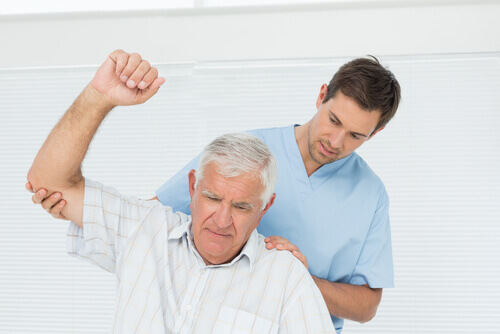The rotator cuff consists of four tendons and the muscles that are located near the joint of the shoulder. These tendons and muscles help to keep the upper arm bone stable in the socket of the shoulder. Many people do not even realize how important their rotator cuff is until they injure the area. Injuries to the rotator cuff are more common in people that often perform repetitive motions such as those who work manual labor jobs or are athletes.
It is important to note that the odds of injuring the rotator cuff increase as you start to get older. When the rotator cuff is injured, everyday tasks such as shoveling snow, raking leaves, or even throwing a ball, can become very difficult. Most people recover from injury through physical therapy. Here are 14 signs of a rotator cuff tear. If you notice any of these, call your doctor right away.
1. Pain When You Reach Up
If you notice pain when you reach your arm above your head, there is a chance that you have injured your rotator cuff and possibly have a rotator cuff tear. There are many activities that you may perform that will cause pain if you have torn your rotator cuff.
Reaching up for items on a higher shelf is one of the motions that can be difficult if you have torn your rotator cuff. Even changing a lightbulb may be difficult as you have to reach above your head in order to remove the old lightbulb and put in a new one. No matter what type of action you are performing when you notice that there is pain, it is important to take note of it.
If you start to notice that there is a pattern of pain every time that you are reaching above your head, you may have torn your rotator cuff.



